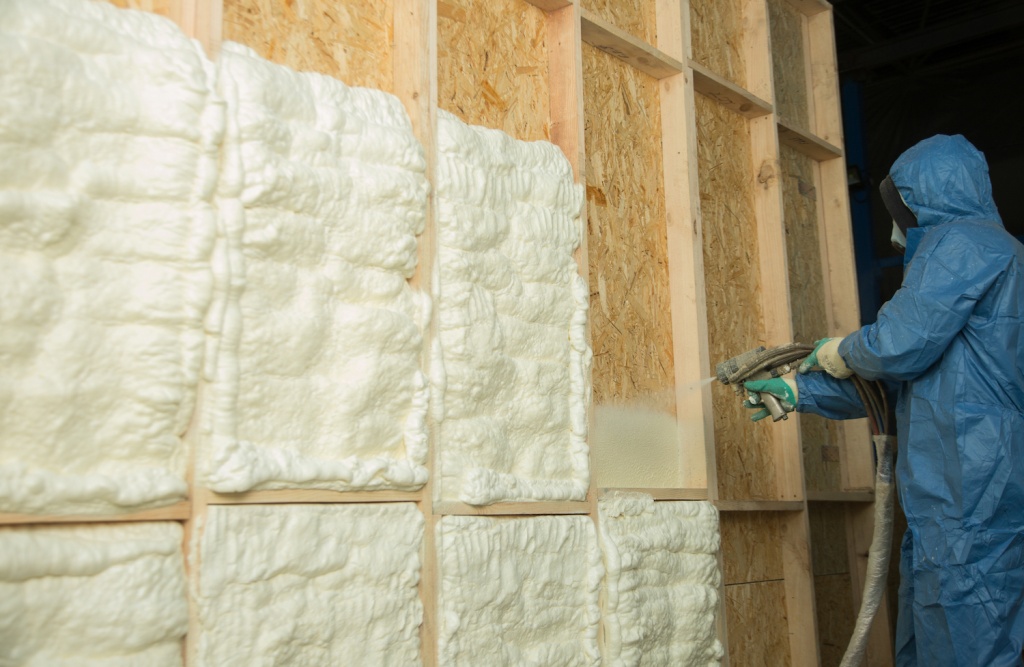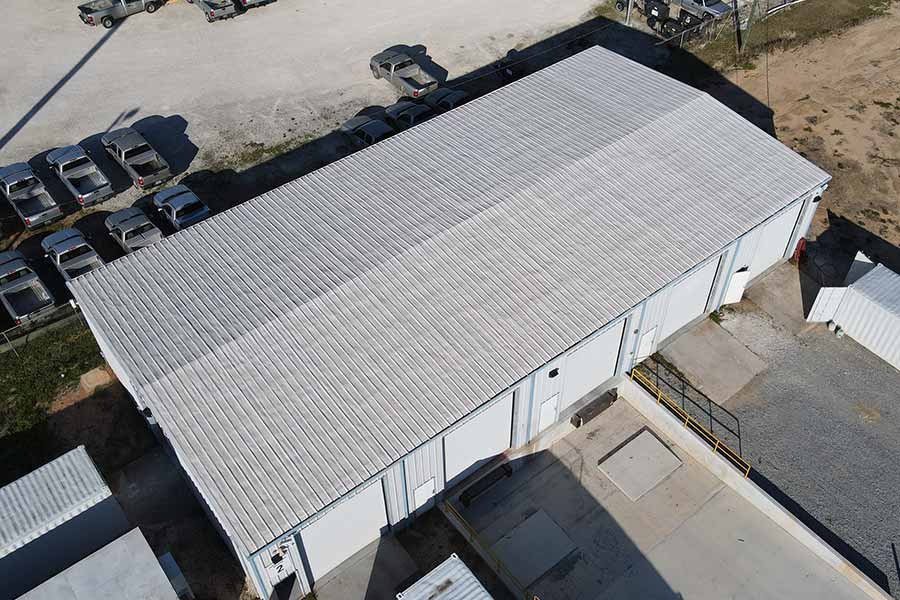Choosing the right local spray foam insulation services in Seattle requires more than just looking for someone with the tools to get the job done. You need trained, certified insulation experts who understand how to work with Seattle’s damp, coastal climate and who offer a full range of insulation solutions—from attic to foundation. Selecting the right team means protecting your home or commercial property from moisture, improving your building’s energy efficiency, and ensuring long-term comfort.
This guide breaks down exactly what to look for when evaluating insulation specialists. It explains how to compare their services, qualifications, and performance in the local market so you can make a smart, informed decision that protects your investment and boosts efficiency year-round.
Key Evaluation Factors for Local Insulation Experts in Seattle
Start by looking at experience and credibility. Seattle’s climate isn’t just wet—it’s unpredictable. This means spray foam insulation must do more than seal air leaks. It must block moisture, prevent mold, and withstand long-term exposure to temperature changes.
Choose certified insulation experts with at least five years of hands-on experience in the Seattle area. Ask whether they’ve worked on homes or buildings similar to yours. Review their licensing status, insurance coverage, and installer training. Certification from SPFA (Spray Polyurethane Foam Alliance) and OSHA training are strong indicators of professionalism and safety standards.
Don’t just take their word for it. Look at recent projects. Ask to see before-and-after photos or testimonials from other homeowners or business owners in the area. Consistent positive feedback is a good indicator that you’re working with a reliable, trusted name.
Professionals should also offer both open-cell and closed-cell spray foam, with clear explanations of what each is best for. Look for teams that conduct full energy evaluations before quoting a price. A quality estimate should follow a full inspection—not just a phone call.
Full Range of Insulation Services to Expect
The right team doesn’t just specialize in one thing. Here are the full services that a top-tier local insulation company like Cascadia Spray Foam of Seattle should provide, each playing a key role in whole-building efficiency:
Residential Insulation Custom insulation for houses, covering attics, walls, crawl spaces, and more to help reduce heating and cooling bills.
Commercial Insulation High-performance spray foam solutions designed for office buildings, warehouses, and other commercial facilities to reduce overhead energy costs and meet energy codes.
Open-Cell Spray Foam Light-density foam perfect for interior walls and ceilings where soundproofing and flexibility are priorities.
Closed-Cell Spray Foam High-density foam with a rigid structure that offers superior moisture resistance and insulation for basements, roofs, and exteriors.
Attic Insulation Spray foam applied to attic floors or roof decks, preventing heat loss through the top of the house and protecting against moisture buildup.
Spray Foam Roofing Closed-cell foam applied to flat or low-slope roofs to provide both waterproofing and insulation in one system.
Wall Insulation Targeted insulation for exterior and interior walls to control airflow, reduce noise, and regulate indoor temperature consistently.
Exterior Insulation A barrier of foam on the outside of the building envelope that helps keep warm air in during winter and hot air out during summer.
Foundation Insulation Closed-cell spray foam applied to foundation walls and slabs to block moisture and improve the efficiency of basements and crawl spaces.
Residential Spray Foam Insulation Whole-home spray foam applications tailored to the structure and needs of Seattle homeowners focused on comfort and efficiency.
Commercial Spray Foam Insulation Complete building solutions for businesses needing long-lasting insulation that meets building code and supports sustainability goals.
Each of these services addresses different parts of a building’s thermal envelope. The best local teams recommend the right combination based on your property’s age, design, and exposure to elements.
Comparing Spray Foam Types for Seattle Homes and Buildings
| Type | Open-Cell Spray Foam | Closed-Cell Spray Foam |
|---|---|---|
| Density | Low | High |
| R-Value per inch | ~3.5 | ~6.5 |
| Air Seal Effectiveness | Good | Excellent |
| Water Resistance | Minimal | Excellent |
| Structural Strength | Low | High |
| Typical Uses | Interior walls, soundproofing | Roofs, basements, exterior insulation |
| Cost | Lower upfront | Higher upfront, better long-term ROI |
Closed-cell foam is especially valuable in moisture-heavy zones like basements, foundations, and roofs. Open-cell is best used in areas where airflow needs to be blocked but breathability is still beneficial.
Technical Specifications for Foam Selection
| Specification | Open-Cell Foam | Closed-Cell Foam |
|---|---|---|
| Expansion Rate | High (up to 100x) | Medium (30x–40x) |
| Vapor Barrier | No | Yes |
| Ideal Application Thickness | 3.5″–5.5″ | 1″–2.5″ |
| Air Barrier | Yes | Yes |
| Soundproofing | Excellent | Good |
| Thermal Resistance (R-Value) | Lower per inch | Higher per inch |
These details matter when matching insulation types to specific parts of your property.
Important Pre-Decision Factors
Before hiring, consider these points:
Local Experience Seattle’s code requirements and climate conditions are unique. Choose insulation professionals who have already navigated those challenges.
Safety and Legal Protections Verify that they are licensed and insured. Check if the installers receive annual safety training and follow EPA-approved guidelines.
Inspection-First Estimates Avoid price quotes that are based only on square footage. Reputable teams will inspect your building before giving an estimate.
Warranty and Follow-Up Spray foam should come with a manufacturer-backed warranty plus a workmanship guarantee. The best teams follow up after installation to verify performance.
Sustainability Focus Eco-friendly insulation providers use low-VOC foam and recommend strategies that reduce your home’s carbon footprint over time. Common Questions When Choosing a Local Insulation Specialist
Common Questions When Choosing a Local Insulation Specialist
How long does a spray foam insulation project take in a Seattle home? Most residential projects take one to three days, depending on the size and areas being insulated.
Do I need to leave my home during the installation? Yes, during the spray application and cure period, usually about 24–48 hours, it’s safer to vacate the space due to fumes.
Is spray foam safe for homes with children or pets? Yes, once cured properly, spray foam is safe and doesn’t emit harmful chemicals. Ensure proper ventilation during installation.
How do I know which type of foam is best for my property? A professional energy inspection will help determine whether open-cell, closed-cell, or a hybrid application is best for each zone.
Will I see energy savings immediately? Many homeowners in Seattle report immediate improvements in temperature control and noticeable reductions in heating bills within the first month.
Bonus Tips from Insulation Pros
Check if your insulation team offers blower door testing or thermal imaging. These tools help identify hidden leaks before applying insulation.
Ask about noise reduction benefits. Open-cell foam in interior walls can reduce sound transfer, making your home quieter.
Use spray foam with radiant barriers or vapor barriers in combination to maximize energy savings in attics or crawlspaces.
Seattle Market Insight
According to the 2024 Puget Sound Energy report, homes insulated with closed-cell foam reduced annual heating costs by up to 18%. In addition, real estate data shows that homes in King County with upgraded insulation sell 15% faster than comparable homes without it.
FAQ
What’s the lifespan of spray foam insulation in Seattle? With proper installation, it can last over 30 years without degradation.
Is spray foam worth the cost compared to fiberglass or cellulose? Yes. Though the initial investment is higher, the long-term energy savings and moisture protection make spray foam more cost-effective.
Can spray foam be installed in older homes? Absolutely. It’s commonly used in Seattle renovations, especially in homes with outdated insulation or air leaks.
Does insulation help with soundproofing? Open-cell spray foam is excellent for sound control. It’s commonly used between walls, floors, and ceilings to reduce indoor noise.
What should I look for in a spray foam warranty? Look for a combination of material warranties (10–25 years) and workmanship warranties (5–10 years) from the installer.
Conclusion
Evaluating the right local spray foam insulation contractor in Seattle comes down to assessing their experience, service range, technical expertise, and understanding of the city’s unique climate. The best insulation professionals combine open- and closed-cell foam knowledge, offer personalized recommendations after full inspections, and deliver solutions that enhance your property’s comfort, safety, and value.
Don’t rush the decision. Ask questions, check credentials, and make sure the specialists you choose are prepared to offer long-term solutions—not just short-term fixes.
Ready to Achieve Long-Term Energy Efficiency?
Apply these insights now: Schedule your free insulation evaluation with Seattle’s leading foam insulation specialists. Contact: Cascadia Spray Foam of Seattle 📞 (425) 386-3500 📧 [email protected] Reviewer:
Reviewer:
Olivia Thompson has spent 10 years working in spray foam insulation, helping companies grow their visibility. She reviewed this article and provided valuable suggestions on how to better align the content with the needs and expectations of customers, ensuring it resonates with the target audience.









